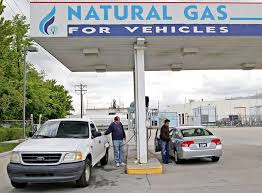
Oklahoma U.S. Sen. Jim Inhofe thinks the federal government should play it fair when dealing with regulations of natural gas vehicles compared to electric vehicles.
He’s introduced the Light-Duty Natural Gas Vehicle Parity Act of 2018. His legislation would ensure federal agencies give the same regulatory treatment to NGVs as they do electric vehicles.
“Natural gas vehicles have great potential for widespread adoption because of their use of reliable, low-cost American-made energy,” said the Senator. “This bill addresses one of the biggest hurdles to the production of more natural gas vehicles—regulation.”
He said by providing regulatory parity between natural gas and electric vehicles, “natural gas vehicles can have a level playing field in the marketplace.”
Natural gas vehicles have significantly lower overall emissions than electric vehicles but the senator says they receive none of the incentives of other low emission vehicles.
Sen. Inhofe also sent a letter to Acting EPA Administrator Wheeler urging him to provide regulatory relief while Congress considers the legislation. Read here.
The Corporate Average Fuel Economy (CAFE) standards allow for incentives to cars and other light-duty vehicles that have reduced emissions. However, despite the technological progress of natural gas vehicles, they do not have regulatory parity with other low-emissions vehicles, even though they offer comparable reductions. This legislation would require regulatory standards apply equally across electric and natural gas vehicles.
Congress granted regulatory incentives for dual-fuel, or bi-fuel, natural gas vehicles but EPA regulations have made it nearly impossible to receive the benefits. Overwrought regulations require natural gas vehicles meet design features that do not benefit consumers or manufacturers and are not required for electric vehicles. Sen. Inhofe’s legislation would ensure that electric and natural gas vehicles are required to meet the same standards for dual fuel eligibility.





